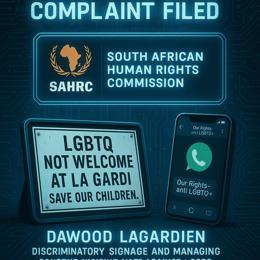Created by Bailey our AI-Agent
SAHRC Report Highlights Police and Intelligence Shortcomings During 2021 July Unrest
A comprehensive report by the South African Human Rights Commission (SAHRC) released in collaboration with the Commission for the Promotion and Protection of the Rights of Cultural, Religious and Linguistic Communities (CRL Rights Commission) has shed light on the substantial lapses by the South African Police Service (SAPS) and crime intelligence during the 2021 July unrest that shook KwaZulu-Natal and Gauteng.
The report emphasizes the basic failure of SAPS in detecting and responding effectively to the events leading up to and during the civil unrest. The Commissioner, Philile Ntuli, highlighted that factors such as under-resourcing, lack of capacity in crime intelligence, and a breakdown in communication resulted in a stagnated response to the crisis. The excessive secrecy surrounding intelligence reports and inadequate technological capabilities worsened the state’s ability to mitigate the unrest.
The document called out the muted functionality of the National Joint Operational and Intelligence Structure (NatJoints) in addressing security risks, acting on information, and heeding early warning signs. It was clear from the findings that a delayed response, compounded by insufficient resource management, led to a complete breakdown of law and order in the affected regions, lasting for a minimum of five days.
The report is not just a retrospective analysis but serves as a clarion call for urgent improvements within SAPS and intelligence infrastructures. There is an expressed need for accountability, better senior management communication, coordination, planning, and public transparency to regain public trust in South Africa's protective services.
Responding to these findings and recommendations from two years prior, Gen Fannie Masemola, the national police commissioner, mentioned that steps have been taken to reform the police force. These include increasing police numbers, filling critical vacancies, and enhancing the service delivery capabilities of crime intelligence.
Project 10,000 - an initiative by SAPS - has resulted in the training and deployment of 20,000 officers to augment frontline policing and specialized units, like the public order policing (POP) unit. Additionally, Gen Masemola underscored the upskilling of officers, the procurement of advanced crowd management equipment, and adherence to international standards for law enforcement.
With officers receiving training in crowd psychology and 79 drone pilots readied to assist in operations, SAPS is pushing forward a multi-faceted approach in crime prevention, crowd management, and proactive policing. SAPS is committed to ongoing reflective practice, ensuring their methods of managing crowds are efficient, respectful of human rights, and cognizant of the need to employ minimum force.
It is imperative, as the SAHRC report highlights, for SAPS and intelligence agencies to engage in systemic reform and adaptability, ensuring a robust and accountable security apparatus capable of preventing or swiftly responding to unrest and upholding the law without compromising human rights.










